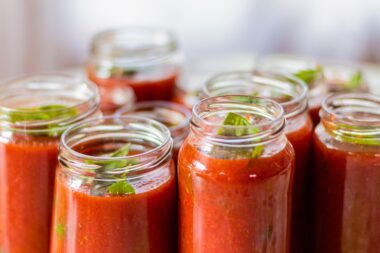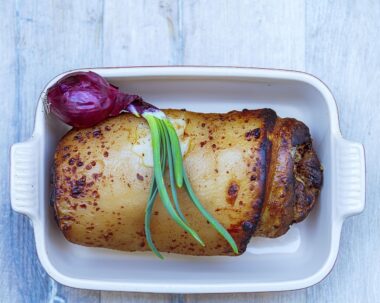Customizing Puppy Food Recipes by Breed and Age
Creating homemade puppy food is an excellent way to ensure your pet receives the nutrients they need. However, it’s important to customize recipes according to your puppy’s breed and age. Different breeds have unique nutritional requirements, and puppies go through various growth stages. For example, small breeds often require higher calorie content due to their fast metabolism. On the other hand, large breeds need a balanced diet that supports healthy growth without causing joint issues. You should consult your veterinarian to determine the best balance of protein, carbs, and fats for your particular puppy. Consider sourcing high-quality ingredients, which can significantly impact your puppy’s health. Lean meats, whole grains, and fresh vegetables should form the majority of the meals. Moreover, keep an eye on any sensitivities your puppy may have to certain ingredients, and adjust accordingly. Taking these factors into account will make sure your puppy grows strong and healthy. You’ll not only provide nutritious meals but also contribute to their overall well-being. Remember, homemade food should complement traditional diets and be tailored for optimal nutritional benefits.
When customizing recipes, age is a crucial aspect that plays a significant role in determining your pup’s nutritional needs. Puppies grow rapidly, and their energy needs are different compared to adult dogs. For instance, young puppies typically need around 22-32% protein in their diets, which is essential for growth. Recipes for older puppies should include a balance of protein and fats, supporting ongoing development and maintaining healthy body condition. Older puppies will benefit from a blend of moderate protein levels with healthier fats that contribute to the development of muscles and bones. This phase is where good nutritional habits begin; thus, prioritizing high-quality ingredients is essential. Opt for whole food recipes rather than processed options, as they provide comprehensive nutrition. Including vegetables like carrots, peas, and sweet potatoes not only adds fiber but also boosts vitamins and minerals intake. Additionally, consider incorporating supplements as advised by your vet, tailored to specific needs that might not be met by home-cooked meals alone. This ensures you provide a balanced diet and minimizes the risk of nutritional deficiencies throughout critical growth phases.
Understanding Breed-Specific Requirements
Focusing on your puppy’s breed can greatly influence the homemade recipes you create. Different breeds have varying health concerns and dietary needs. For instance, large breeds, such as Great Danes, are prone to bone and joint problems and require a diet lower in calories to prevent rapid growth. In contrast, smaller breeds, like Chihuahuas, need energy-dense meals to fuel their high activity levels. When developing recipes, you should prioritize ingredients beneficial for your dog’s breed. Research breed-specific dietary guidelines and consult your veterinarian for the best approach. Consider opting for easily digestible proteins, incorporating options like fish or chicken that provide essential amino acids. It’s also vital to include breed-appropriate fruits and vegetables, such as blueberries or spinach, which can enhance immune support. Make sure to also account for allergies and intolerances your puppy might have; keep track of their reactions and tailor recipes accordingly. Every breed offers unique challenges and benefits pertaining to their diet that homemade food recipes should address effectively, paving the way for healthier, happier dogs.
Learning about the importance of proper puppy nutrition requires understanding calorie counts and nutritional guidelines. Each breed has a different calorie requirement based on size and energy expenditure. For instance, a young Labrador Retriever may require about 1,000 calories a day as it grows, while a tiny Yorkie might only need around 300 calories. Calculate your puppy’s calorie needs based on their current weight and activity level. You can employ a simple formula: weight in pounds multiplied by 30, plus 70, to estimate daily caloric intake. Always consult a professional before making major changes to their diet or feeding routines. You should also evaluate and adjust portion sizes carefully; avoid free-feeding if possible to encourage a healthy eating routine. Adjust ingredients according to activity levels or stage of development, as puppies may require different calories during growth spurts. Keep in mind to provide fresh water at all times. As your puppy ages, consult your vet regarding transitioning to adult food to ensure their nutritional requirements continue to be met. This proactive approach will foster long-term health and well-being.
Essential Ingredients for Healthy Recipes
Incorporating a variety of essential ingredients in homemade puppy meals will create balanced and nutritious recipes. High-quality protein sources should form the foundation of any puppy meal, with options like chicken, beef, or fish being ideal choices. Lean meats help build strong muscles and provide energy for playful activities. Grains can also be included for fiber, energy, and the necessary carbohydrates puppy needs to thrive. Brown rice, oatmeal, and quinoa are excellent grain choices for puppies that are easy to digest and loaded with nutrients. Additionally, fruits and vegetables contribute vital vitamins and minerals that foster immune health. Ingredients like carrots, green beans, and blueberries can be seamlessly integrated into meals. Healthy fats should not be overlooked; consider adding sources like fish oil to promote healthy skin and coat. Supplementing homemade food with calcium materials could be beneficial, especially for growing pups needing strong bones. Remember to avoid toxic foods like chocolate, grapes, or onions while sourcing ingredients. Understanding the role these components play in your puppy’s diet will ensure you’re crafting wholesome recipes they deserve.
To implement the process of customizing puppy food effectively, meal prepping can be a game-changer. Preparing meals ahead of time allows you to establish routine and consistency in your puppy’s diet. Cooking larger batches lets you easily freeze portions for easy access later, ensuring your puppy always has nutritious food available. Opt for food-safe containers to store these meals efficiently without compromising freshness. Always be sure to label each portion with the date to prevent any confusion regarding its age. Keeping track of what ingredients you use also helps maintain a balanced diet while recognizing any seasonal favorites your puppy enjoys. Regularly change up ingredients to avoid any boredom with their meals, as it helps keep their interest alive. Furthermore, introducing different tastes and textures can be a great enrichment to your puppy’s life. It’s essential to establish feeding routines to create an expectation around mealtimes; consistent timing encourages healthy habits. Always monitor your puppy’s overall health during these changes and consult with your veterinarian regarding any significant shifts. Creating healthy routines in meal prep will lay a good foundation for your puppy’s journey.
Monitoring Your Puppy’s Health
After customizing homemade recipes for your puppy, monitoring their overall health becomes essential. Regular veterinary check-ups can help ensure that your puppy is developing properly and gaining the necessary weight. Your vet can help you adjust recipes if they notice any growth issues, allergies, or other concerns. As your puppy matures, their nutritional needs will evolve; keeping an open line of communication with your veterinarian will greatly assist in addressing any changes promptly. Observe your puppy’s coat condition, energy level, and overall demeanor to gauge whether they are thriving on the customized meals. Any signs of gastrointestinal upset, as well as changes in appetite or behavior, should be documented and reported. Maintaining a health journal can help track these factors over time. You should also encourage regular exercise; this will play a large role in ensuring your puppy remains a healthy weight as well. Taking the time to evaluate and adapt your puppy’s diet and lifestyle will set the stage for a long, happy, and healthy life together. Consistent monitoring will yield positive results.
Proper puppy nutrition not only supports physical health but mental growth as well. By providing homemade meals tailored to specific breed and age needs, you ensure your furry friend has the best chance at living a fulfilling, active life. Remember that the journey of customizing a diet is ongoing. Regular assessments and adaptations will pave the way for a happy, healthy puppy. Give them the best start with the right nutrition, and watch them thrive!





